KOBOX

Shane Collins, founder
This killer concept – of boxing with strength and conditioning in a nightclub-style environment – has gone down a storm in central London, with A listers like David Beckham and Cheryl Cole giving it a go.
“The whole idea of KOBOX is to introduce people to the cardio benefits of boxing, making it fun and accessible, while taking the fear factor out of an intimidating sport,” says the founder, Shane Collins. “This is not a fabricated workout. It’s a culmination of years of experience as a coach and is based on my desire to bring a genuine boxing workout to the mainstream.”
A former coach to elite athletes, who started out at Barry’s Bootcamp, Collins was introduced to the world of boxing via a serendipitous meeting with a boxer at home in Dublin.
“I fell in love with the sport, and all my work started to revolve around training fighters for competition,” he says.
“I wanted to take the sport into the mainstream, because the benefits are so good – hitting a punch bag is good stress relief, and each move targets the entire body. But, if you’re a non-boxer, there is nowhere for you to get access to the sport. Like me, most people are scared to go to a boxing club.”
"The whole idea of KOBOX is to introduce people to the cardio benefits of boxing, making it fun and accessible" – Shane Collins
Collins decided to trial his hunch with a pop-up club on Kings Road in central London in 2015. The environment was dark and atmospheric, with loud music, and the 50-minute workout was half boxing and half strength and conditioning.
“Because it hadn’t been done before, I couldn’t get an investor and people said we were mad to open a boxing gym, especially on Kings Road,” he says. “But we did it anyway and were busy from the get go.”
This success led to a second site being launched at Liverpool Street in 2017, followed by a third club in 2019 at Baker Street. Last year, the pop-up Kings Road club also moved to a permanent home and is the first KOBOX site to include a limited capacity gym circuit, supplied by the Physical Company.
Prices are in line with London boutiques: one class costs £25, with discounts for bulk buys.
Fuelled by Collins’ passion, the unique offering and celebrity interest, KOBOX has been a big hit in London. Collins is now tying up an investment deal to fund a widescale roll out by modifying the concept for secondary cities.
Adding, “I plan to do for boxing what SoulCycle has done for spinning.”
The Athlete Factory
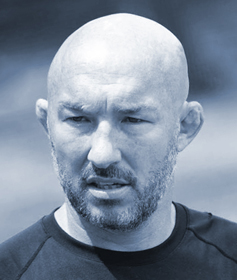
Phil Greening, founder
Former pro-rugby player Phil Greening has created The Athlete Factory in Chester to bring the type of training that elite athletes use to the mainstream. This functional-led gym has a results-orientated, yet inclusive, focus with 11 year olds and national rugby teams among its users.
During his professional rugby career, Greening earned 24 caps for England and played for WASPs, Gloucester and British Lions, before moving into elite level coaching. When Chester Rugby Club enlisted him to redevelop a health club beside the pitch, he jumped at the chance to bring his elite sports skills to the public, taking full control of the project that launched The Athlete Factory in 2017.
“My main goal was to share the knowledge that I had amassed from 20 years’ experience of elite sport to make our members faster, stronger and leaner,” explains Greening.
“We’re taking the methods used by top athletes and applying them to Joe Public.”
The gym has Wattbikes, Woodway treadmills and Concept rowers, a mobility circuit, turf, pulleys, tyre flips, a strongman kit, lifting platforms and bespoke free weights from M Fitness. But what sets it apart is the know-how of the team, all of whom are degree trained in strength and conditioning.
"My main goal was to share the knowledge that I had amassed from 20 years’ experience of elite sport" – Phil Greening
“They approach their members’ fitness goals in the same way as an elite sports coach would train their team for competition – scanning them at the outset, discussing goals, and prescribing a programme which is updated every six weeks,” says Greening.
“Every member has their own coach and they sign into the app to stay accountable. It’s like being part of a professional team.”
Membership rates start at £45 for gym usage only, rising to £80 for AF athlete, which incorporates the functional floor, HIIT, strongman and Wattbike classes, as well as coaching sessions and a programme.
Going forward, Greening plans to open five or six more clubs over the next two to three years in the north of England. Manchester is the next target site, with a slightly smaller urban club run along the same lines as that in Chester.
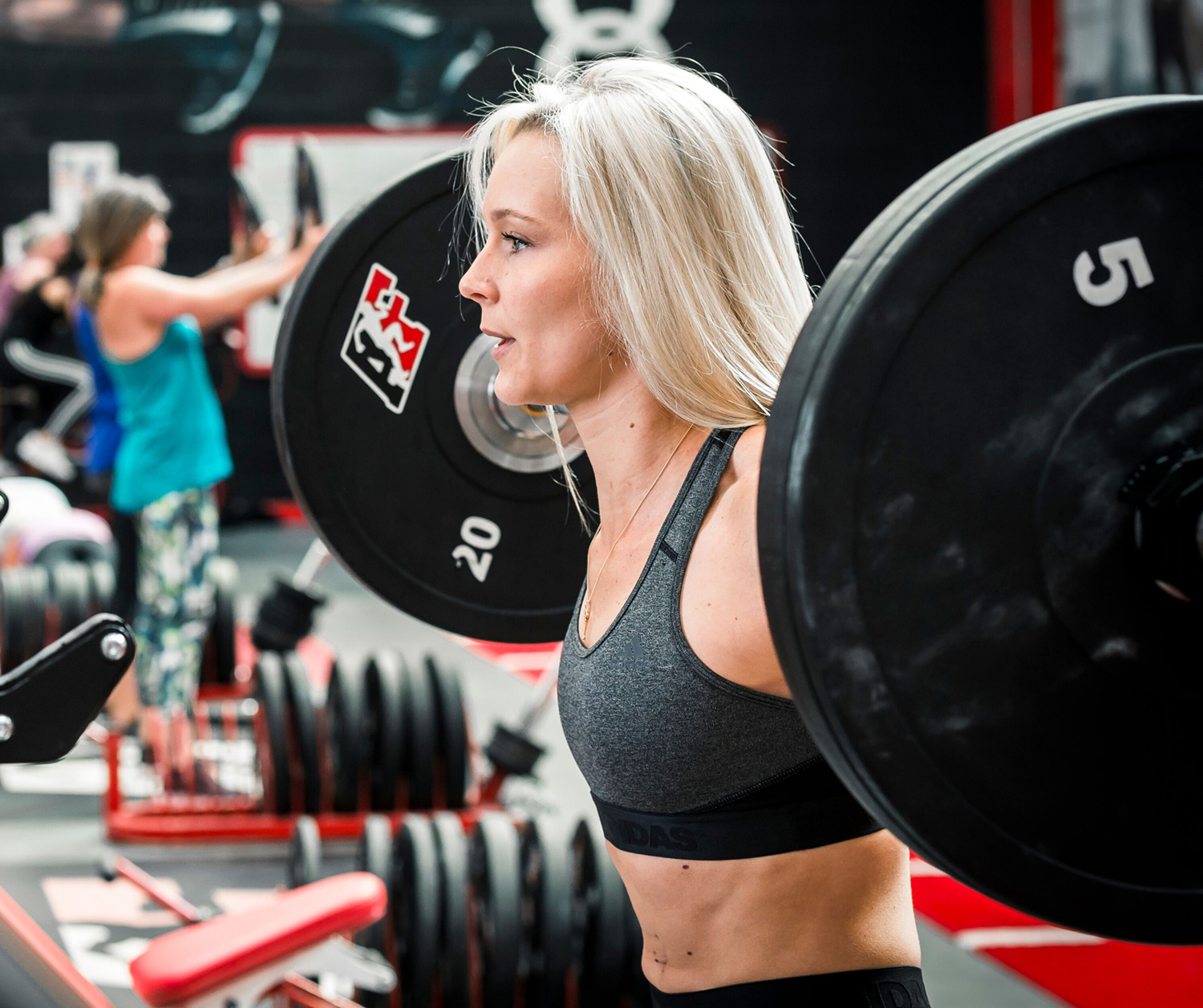
Every member has their own coach and signs into the app to stay accountable
Luxe Fitness
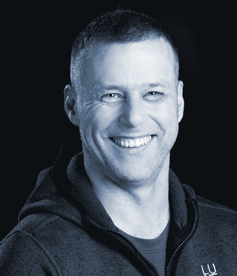
Allyn Condon, head of operations
Not many operators have the sporting pedigree of Allyn Condon, who has represented the UK at both the summer Olympics as a sprinter and the winter Olympics as a bobsleigher. With Luxe Fitness, his aim was to create a club which removed the barriers to exercise and offers a stylish setting at a low cost.
As well as being an elite athlete, Condon has a background in health and fitness working for major chains, but he was disenchanted with the industry and wanted to create something fresh.
“We wanted to create a unique space, which felt like a home from home, which people want to go to,” he says.
“All too often gyms are seen as places that people feel they have to go to, but don’t really want to spend their time in. We wanted to create a space which removed the intimidation factors and feels like a luxury product, while still being affordable.”
Condon found investors to back his vision and a Grade II listed building, in Bristol, to bring his dream to fruition.
"All too often gyms are seen as places that people feel they have to go to, but don’t really want to spend their time in" –
Allyn Condon
Fitted out more like a coffee shop than a gym, with a soothing grey and white palate, its enormous bespoke chandelier is an iconic centrepiece while the original maple and oak floor was retained. To further remove the intimidation factor, there are no mirrors and the equipment is laid out in small zones that are seamlessly linked.
The 7,700sq ft (715sq m) site has a coffee and juice bar, six training zones, two studios (spin and classes), functional equipment, an Exigo rig, free weights and lifting platforms. Core Health and Fitness provided most of the kit. It’s the price of the low cost chains, with no contract memberships at £19.99 a month for 24-hour access.
With a roll out planned, the team may bring in more investors, which will initially be focused in Bristol and west country cities. Condon says he’ll have a different criteria for choosing sites to most operators: “We’re looking for interesting properties, either listed buildings or quirky ones. No two sites will be the same and they will all have the wow factor.”
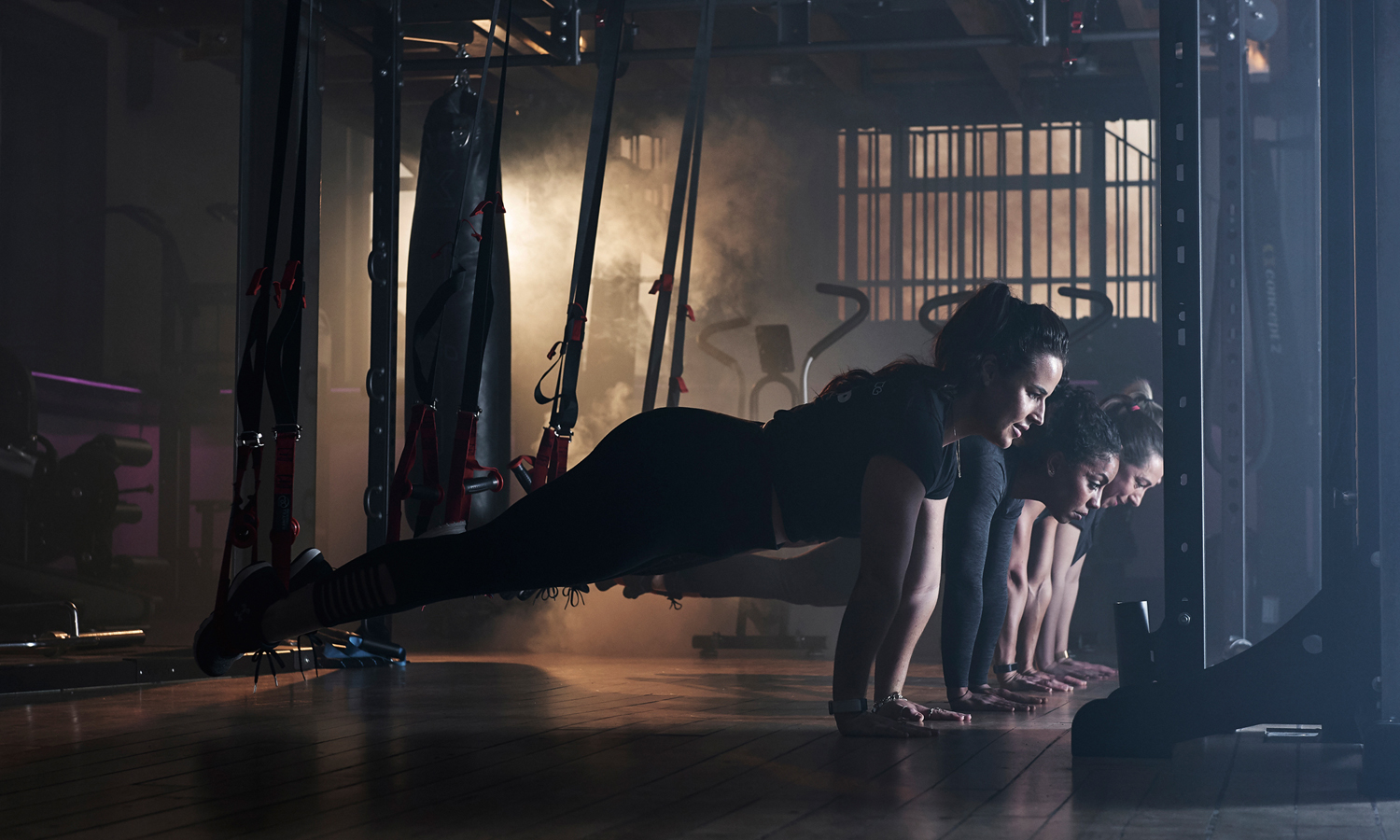
Luxe cleverly combines affordability with style
Class Boutique Fitness

Rob Suchet, founder
Bath-based Class Boutique Fitness collaborated with Physical Company to create a boutique studio offering outside of the capital. Launched in February 2019, the club is as inclusive as it is effective.
“Where most boutique studios operate within a niche, we approached things from a different perspective,” says Rob Suchet, founder of Class Boutique Fitness.
“Rather than focusing on just one form of activity, we looked at what humans need to achieve the broadest range of transferable fitness – that is, fitness we can use in our everyday lives. The answer: variety in our workouts.”
As a result, Class has been designed around a culture of movement and health, offering both yoga and HIIT classes – restorative yin and dynamic yang – with healthy nutrition in its HealthBAR café.
Of the 55+ weekly classes, eight are labelled Upper Class, to denote a lower impact option for older adults and those new to exercise. “We don’t want anyone to feel patronised or like we’re trying to create easy workouts for them. Neither do we want them to think they can’t go into the other classes,” says Suchet.
"Where most boutique studios operate within a niche, we approached things from a different perspective" –
Rob Suchet
“However, older adults can reap such huge benefits from exercise that we felt it was important to properly cater for this group. Above all, we wanted Class to be inclusive and our membership base reflects this: 30 per cent are under 40; 50 per cent are aged 40-60; 20 per cent are over 60 years old.”
The team worked with Physical Company to create the ‘Turn & Burn’ HIIT studio, supplying the Ecore Bounce 2 flooring, a top-of-the-range product with all the functionality of impact flooring, but with a wood finish in line with the club’s premium design. “We wanted people to have all the kit they needed immediately to hand, and when I discovered the Evo bench – an inclinable bench with integrated storage – I knew I’d found the answer,” says Suchet.
In line with the boutique model, the club offers pay as you go, as well as bulk buy monthly options. A single class costs £14, while a batch of 20 is £139.
The club has started to attract early interest from investors and is considering expansion via franchise. However, for the meantime the main focus is to make sure the first studio really delivers.
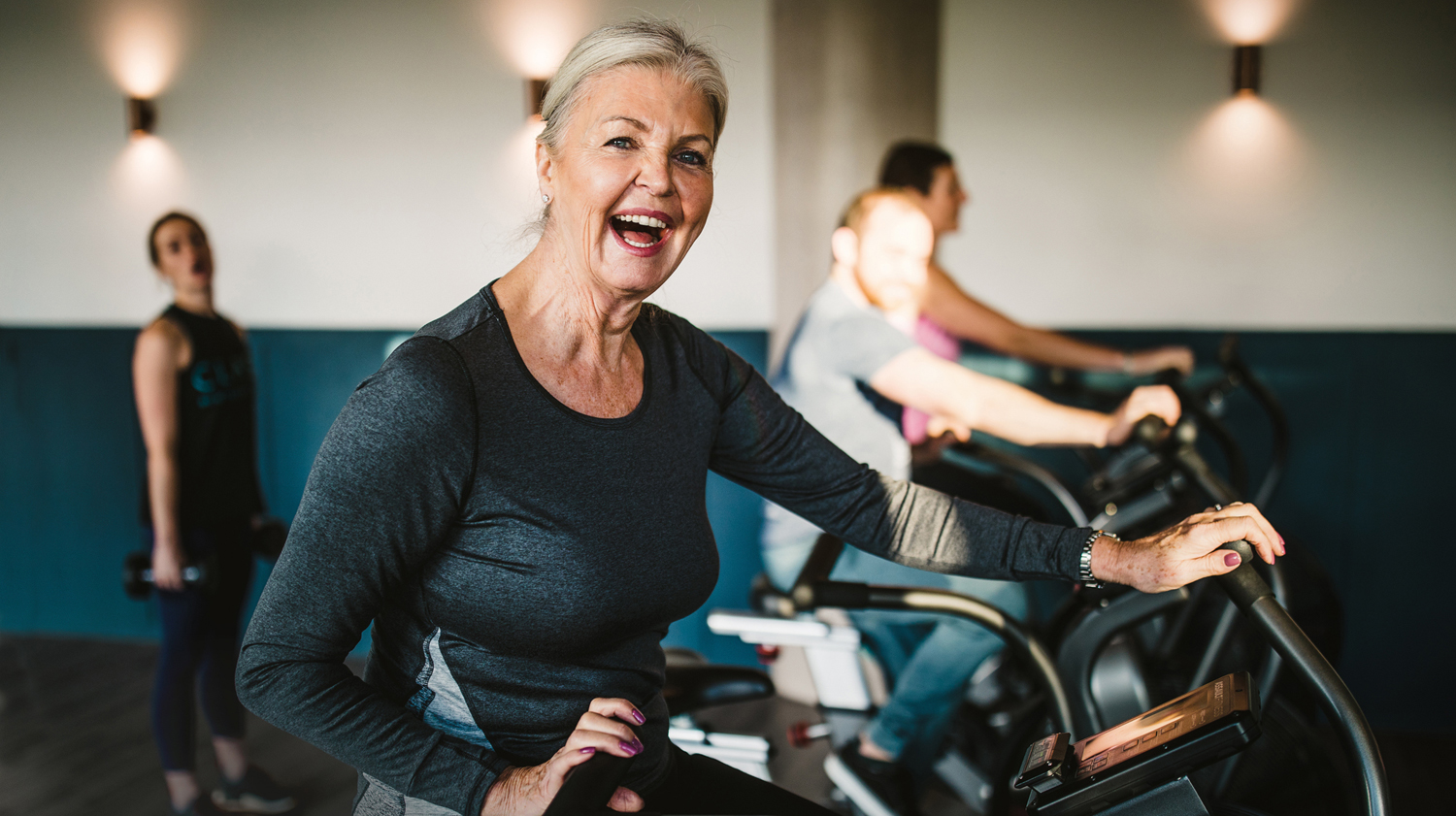
Class Boutique is based on a culture of movement and health
Body Machine

Dr Frances Mikuriya, founder and director
West London boutique studio Body Machine is the vision of Hong Kong born, Taiwan raised and US trained architect Dr Frances Mikuriya.
As well as being the first authentic licensed TRX facility in Europe, Body Machine offers personal training, indoor cycling and a café, all within a beautifully designed and serene space.
With four architectural degrees under her belt, Mikuriya was very specific in her vision and worked with her architecture partner, Jorgen Tandberg, to achieve this. “I wanted to open a club which integrated architecture and fitness,” she says.
“Instead of creating a dark, nightclubby environment – which has become the industry blueprint – I wanted to create a light, airy space which flows seamlessly and has areas for members to socialise. Many of my members are my former clients and know each other well.
“Secondly, I wanted to just offer a couple of activities and do them very, very well. Lots of boutiques have spread themselves thinly offering everything, but I wanted to do indoor cycling and TRX to a high standard and for the classes to be designed to complement each other.”
"I wanted to open a club which integrated architecture and fitness, instead of creating a dark, nightclubby environment" –
Dr Frances Mikuriya
Despite studying and subsequently teaching architecture, Mikuriya has been in the fitness industry for more than 20 years, completing her fitness qualifications and working with private clients alongside her architectural studies and career.
Mikuriya was one of the first to offer private indoor cycling group training in the UK when she launched her own concept, SpinAddikts, out of a rented basement way back in 2004. Once she decided to take the plunge, Mikuriya funded the new project by asking her clients to back her vision. A number of them ended up investing in Body Machine and she found a three-story, 7,400sq ft (687sq m) former Top Shop site in Kensington, central London.
“With massive windows and flooded with light, the site was exactly what I had in my head,” explains Mikuriya.
The studio opened its doors early in 2019 and the prices reflect the London boutique market, with an introductory class costing £18 and a batch of 20 costing £220.
The plan is to get this site running smoothly and then look at expansion. Paris is on the wish list. “I travel there frequently and can see that the fitness industry has really taken hold there now,” she says.
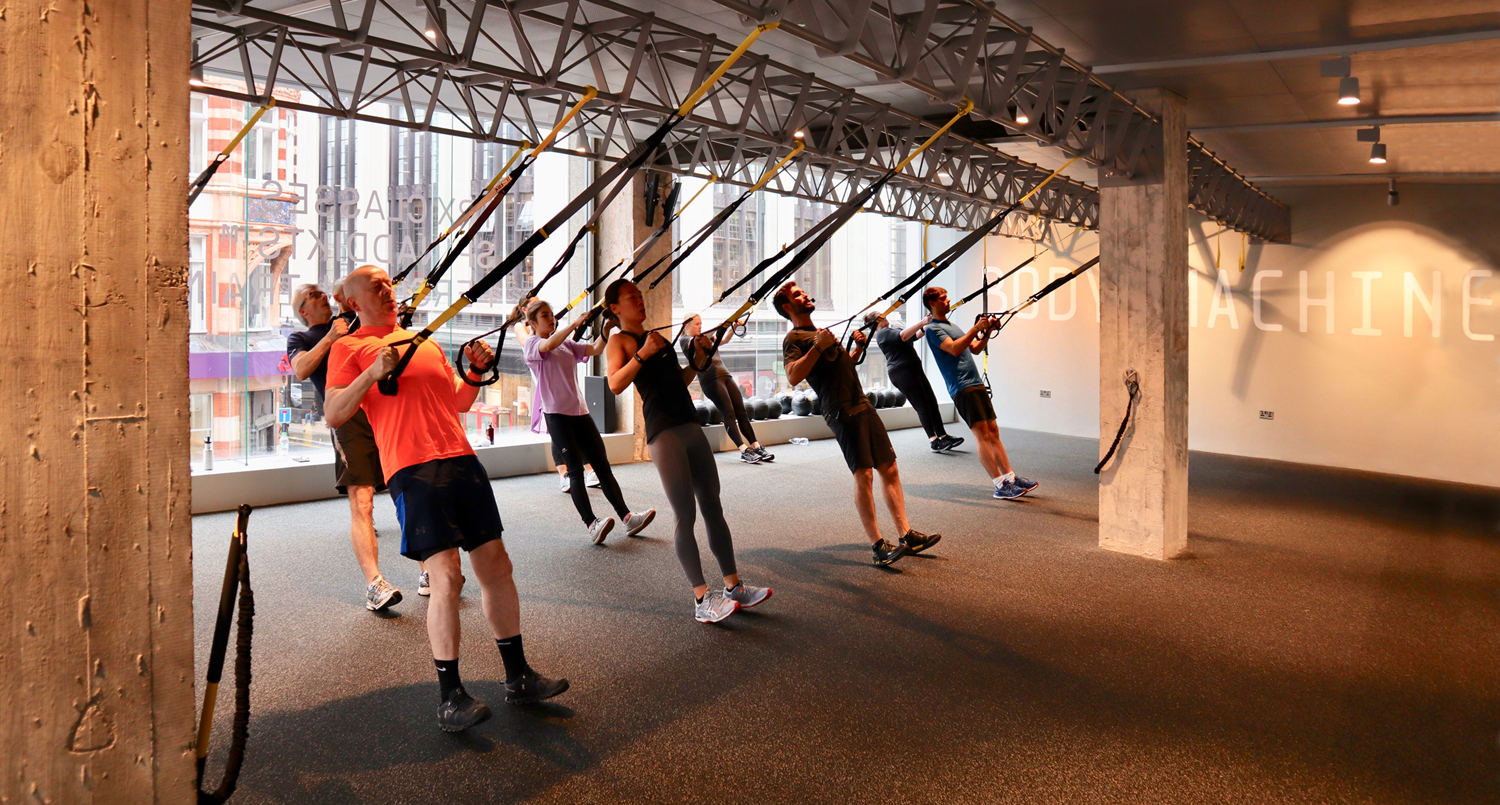
Body Machine offers indoor cycling and TRX to a high standard
|
|
